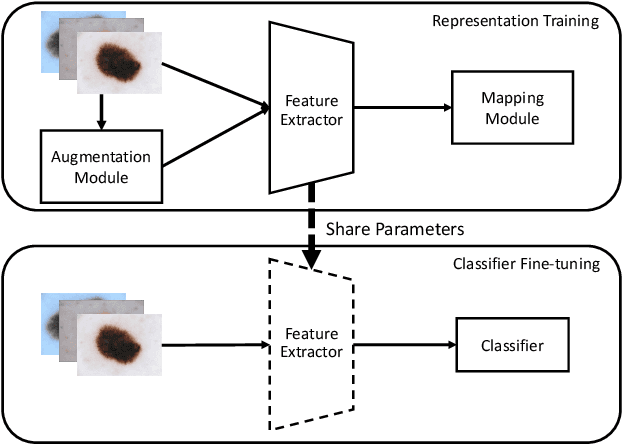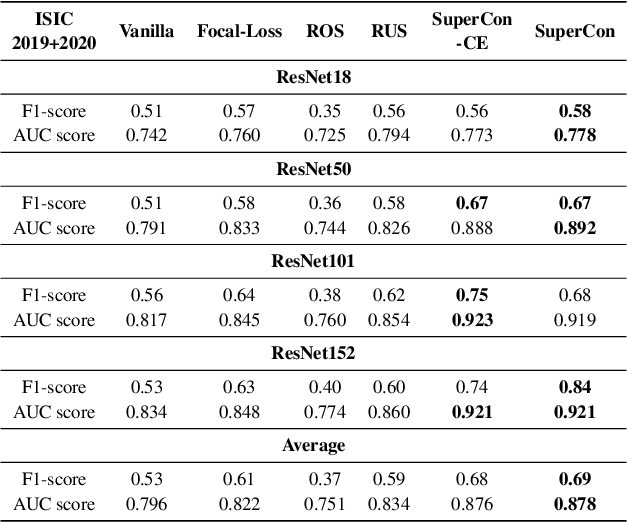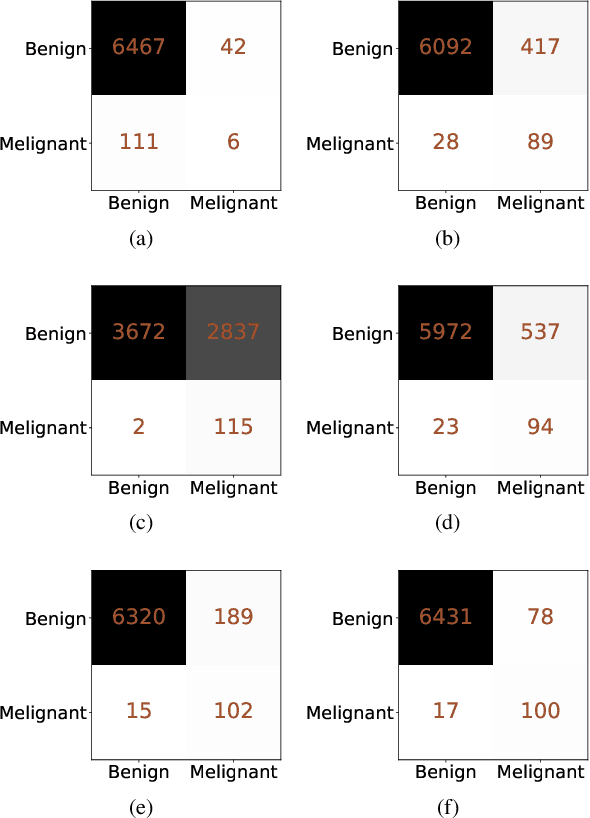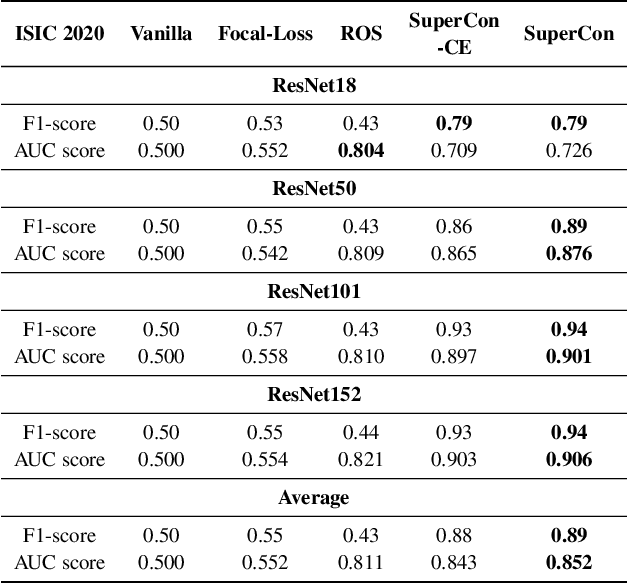SuperCon: Supervised Contrastive Learning for Imbalanced Skin Lesion Classification
Paper and Code
Feb 11, 2022



Convolutional neural networks (CNNs) have achieved great success in skin lesion classification. A balanced dataset is required to train a good model. However, due to the appearance of different skin lesions in practice, severe or even deadliest skin lesion types (e.g., melanoma) naturally have quite small amount represented in a dataset. In that, classification performance degradation occurs widely, it is significantly important to have CNNs that work well on class imbalanced skin lesion image dataset. In this paper, we propose SuperCon, a two-stage training strategy to overcome the class imbalance problem on skin lesion classification. It contains two stages: (i) representation training that tries to learn a feature representation that closely aligned among intra-classes and distantly apart from inter-classes, and (ii) classifier fine-tuning that aims to learn a classifier that correctly predict the label based on the learnt representations. In the experimental evaluation, extensive comparisons have been made among our approach and other existing approaches on skin lesion benchmark datasets. The results show that our two-stage training strategy effectively addresses the class imbalance classification problem, and significantly improves existing works in terms of F1-score and AUC score, resulting in state-of-the-art performance.
 Add to Chrome
Add to Chrome Add to Firefox
Add to Firefox Add to Edge
Add to Edge